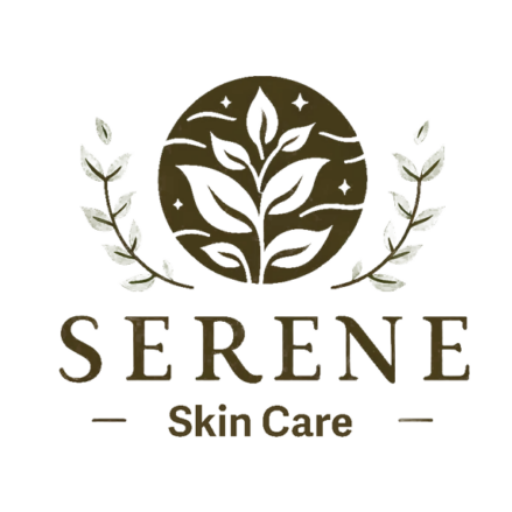In the world of skincare, there is a constant search for ingredients that can deliver remarkable results. One such ingredient that has gained significant attention is growth factors. These tiny proteins are naturally produced by our bodies and play a crucial role in cell growth and regeneration. In recent years, scientists have discovered that incorporating growth factors into skincare products can have profound effects on the skin, helping to improve its texture, reduce the appearance of fine lines and wrinkles, and promote a youthful and radiant complexion. But how exactly do growth factors work? This article delves into the science behind growth factors in skincare, explaining their mechanism of action and the benefits they can offer for achieving beautiful and healthy skin.
Growth Factors 101
Definition and Role
Growth factors are naturally occurring substances that play a crucial role in the growth, development, and repair of cells in the body. They are small proteins that signal cells to divide, stimulate cell migration, and promote the production of collagen and other structural proteins. In skincare, growth factors are used to improve the overall health and appearance of the skin by promoting skin regeneration, stimulating collagen production, and improving skin firmness and elasticity.
Types of Growth Factors
There are various types of growth factors that are commonly found in skincare products. Some of the most common types include epidermal growth factor (EGF), transforming growth factor-beta (TGF-β), platelet-derived growth factor (PDGF), and fibroblast growth factor (FGF). Each type of growth factor has its own specific functions and benefits for the skin.
How Growth Factors Work
When applied topically to the skin, growth factors bind to specific receptors on the surface of skin cells, triggering a cascade of cellular events. These events include the activation of signaling pathways that promote cell division, migration, and the synthesis of collagen and elastin fibers. Additionally, growth factors can also enhance the skin’s natural defense mechanisms, leading to improved overall skin health and vitality.
Importance of Growth Factors in Skincare
Promoting Skin Regeneration
One of the key benefits of growth factors in skincare is their ability to promote skin regeneration. As we age, the rate at which our skin cells turnover slows down, leading to a dull and lackluster complexion. Growth factors help to accelerate this process by stimulating the production of new skin cells, resulting in fresher, brighter, and more youthful-looking skin.
Stimulating Collagen Production
Collagen is a crucial structural protein that gives our skin its strength and elasticity. As we age, the production of collagen in our skin decreases, leading to signs of aging such as wrinkles and sagging. Growth factors can help to stimulate collagen synthesis in the skin, resulting in improved skin firmness, elasticity, and a reduction in the appearance of fine lines and wrinkles.
Improving Skin Firmness and Elasticity
Loss of skin firmness and elasticity is a common concern as we age. Growth factors have the ability to signal fibroblasts, the cells responsible for producing collagen and other structural proteins, to increase their production. This, in turn, leads to improved skin firmness and elasticity, giving the skin a more youthful and lifted appearance.
Sources of Growth Factors
Natural Sources
Growth factors can be derived from various natural sources such as plants, animals, and humans. Plant-derived growth factors, such as those obtained from barley extract or green tea, offer a natural and sustainable alternative for skincare formulations. Animal-derived growth factors, such as those obtained from bovine or porcine sources, are often used in skincare products due to their high similarity to human growth factors. Human growth factors, derived from human stem cells or bioengineered in the laboratory, provide a highly targeted and effective approach to skincare.
Synthetic Sources
Synthetic growth factors are created in the laboratory using recombinant DNA technology. These artificially synthesized growth factors mimic the structure and function of natural growth factors. Synthetic growth factors offer a more controlled and consistent source of active ingredients, ensuring their purity and potency in skincare formulations.
Laboratory Cultivation
In addition to natural and synthetic sources, growth factors can also be cultivated in the laboratory using advanced biotechnological techniques. This involves the isolation of specific cells or tissues, such as stem cells or fibroblasts, and culturing them under controlled conditions to produce large quantities of growth factors. This method allows for precise control over the growth factors produced, ensuring their safety and efficacy in skincare products.
The Process of Extracting Growth Factors
Advanced Biotechnological Techniques
The extraction of growth factors from their natural or synthetic sources often involves advanced biotechnological techniques. This can include processes such as chromatography, which separates and purifies the growth factors from other compounds present in the source material. These techniques ensure the isolation of pure and potent growth factors for use in skincare formulations.
Stem Cell Culture
Stem cells have the unique ability to differentiate into various cell types, including skin cells. Stem cell culture involves the isolation and expansion of stem cells, either from plant, animal, or human sources, under controlled laboratory conditions. These cultured stem cells can then be stimulated to release growth factors, which are subsequently harvested and utilized in skincare products.
Fermentation
Fermentation is another commonly used method for extracting growth factors. In this process, microorganisms such as bacteria or yeast are cultivated and allowed to ferment a nutrient-rich medium. During fermentation, the microorganisms produce and release growth factors into the medium. The growth factors are then extracted and incorporated into skincare formulations.
Formulation and Stability of Growth Factors in Skincare Products
Challenges in Formulation
Formulating with growth factors can present certain challenges due to their inherent instability. Growth factors are sensitive to environmental factors such as temperature, pH, and oxidation, which can degrade their efficacy. Therefore, it is crucial to employ advanced formulation techniques to ensure the stability and effectiveness of growth factors in skincare products.
Microencapsulation
Microencapsulation is a technique commonly used to protect and deliver growth factors in skincare formulations. This involves encapsulating the growth factors within tiny, protective spheres that shield them from the degrading effects of the environment. The microencapsulation process not only enhances the stability of growth factors but also allows for controlled release, ensuring their prolonged efficacy on the skin.
Use of Carrier Systems
By incorporating growth factors into carrier systems, such as liposomes or nanoparticles, their stability and penetration into the skin can be further improved. These carrier systems can enhance the bioavailability and targeted delivery of growth factors, maximizing their effectiveness in skincare products.
Efficacy and Clinical Studies on Growth Factors
Measurement Methods
The efficacy of growth factors in skincare is often evaluated through various measurement methods. This can include techniques such as biopsy analysis, where skin samples are taken and analyzed for key markers of skin health and regeneration. Additionally, non-invasive methods such as imaging technologies or skin impedance measurements can also be employed to assess the effects of growth factors on the skin.
Effects on Skin Repair
Numerous clinical studies have demonstrated the efficacy of growth factors in promoting skin repair. These studies have shown that growth factors can accelerate wound healing, reduce post-inflammatory hyperpigmentation, and improve overall skin texture and tone. The ability of growth factors to enhance the skin’s natural repair mechanisms makes them a valuable ingredient in skincare formulations.
Comparative Studies
Comparative studies have also been conducted to evaluate the effectiveness of growth factors compared to other skincare ingredients. These studies have shown that growth factors can outperform certain traditional anti-aging ingredients in improving skin firmness, elasticity, and reducing the appearance of wrinkles. The unique properties of growth factors make them a promising addition to skincare formulations.
Combination of Growth Factors with Other Skincare Ingredients
Antioxidants
Combining growth factors with antioxidants can provide synergistic benefits for the skin. Antioxidants help to neutralize free radicals, which are known to cause damage to skin cells. When used in combination, growth factors and antioxidants can promote skin rejuvenation while protecting the skin against environmental stressors and premature aging.
Peptides
Peptides are short chains of amino acids that can promote collagen synthesis and improve overall skin health. When combined with growth factors, peptides can enhance the regenerative effects and anti-aging benefits of growth factors. This combination can help to further improve skin firmness, reduce the appearance of wrinkles, and enhance the overall texture and tone of the skin.
Hyaluronic Acid
Hyaluronic acid is a naturally occurring substance in the skin that provides hydration and plumpness. It has the ability to hold up to 1000 times its weight in water, making it an excellent moisturizing ingredient. When used in combination with growth factors, hyaluronic acid can enhance the hydrating and plumping effects of growth factors, resulting in improved skin moisture levels and a more youthful complexion.
Application of Growth Factors in Skincare
Serums
Serums are lightweight formulations that are designed to deliver a high concentration of active ingredients deep into the skin. Growth factor serums are typically applied after cleansing and toning the skin, and before moisturizer or sunscreen. The lightweight texture of serums allows for rapid absorption, ensuring the effective delivery of growth factors to the skin.
Creams and Lotions
Creams and lotions are thicker formulations that provide hydration and nourishment to the skin. Growth factors can be incorporated into creams and lotions to provide long-lasting effects and enhance the moisturizing benefits of these products. Creams and lotions containing growth factors can be applied twice daily, morning and evening, to ensure optimal results.
Masks
Sheet masks infused with growth factors can provide an intense boost of hydration and rejuvenation to the skin. These masks are typically made of a cotton or hydrogel material and are soaked in a serum containing growth factors. When applied to the skin for a specified period of time, usually around 15-20 minutes, the growth factors penetrate deeply into the skin, leaving it hydrated, plump, and revitalized.
Safety and Side Effects of Growth Factors in Skincare
Allergic Reactions
While growth factors are generally well-tolerated, some individuals may experience allergic reactions to certain growth factors or their derivatives. It is important to perform a patch test before using a skincare product containing growth factors to check for any adverse reactions.
Irritation
In some cases, the use of growth factors in skincare products may cause irritation or redness, especially in individuals with sensitive skin. It is recommended to start with a lower concentration of growth factors and gradually increase usage as the skin becomes acclimated to the product.
Skin Sensitivity
Individuals with highly sensitive skin may need to exercise caution when using skincare products containing growth factors. It is advisable to consult with a dermatologist before incorporating growth factors into their skincare routine to ensure the suitability of the product for their specific skin condition.
Future Perspectives and Trends in Growth Factor Skincare
Nanotechnology and Delivery Systems
Nanotechnology offers exciting possibilities for the future of growth factor skincare. By utilizing nanoparticles or liposomes, growth factors can be encapsulated and delivered more efficiently to the skin, enhancing their stability and bioavailability. This enables targeted and controlled release of growth factors, maximizing their effectiveness in addressing specific skin concerns.
Advanced Bioreactor Cultivation
Advancements in bioreactor cultivation techniques have the potential to revolutionize the production of growth factors for skincare. By creating optimal conditions for growth factor production, such as temperature, nutrient supply, and oxygenation, large quantities of pure growth factors can be produced more efficiently and sustainably, ensuring their availability for the skincare industry.
Personalized Skincare
With the rise of personalized medicine, personalized skincare may become a reality in the future. By utilizing techniques such as genetic testing or skin analysis, skincare products containing growth factors specifically tailored to an individual’s unique biology and skin concerns can be developed. This personalized approach would allow for optimal results and greater satisfaction in skincare products.
In conclusion, growth factors play a vital role in skincare by promoting skin regeneration, stimulating collagen production, and improving skin firmness and elasticity. They can be derived from natural or synthetic sources, as well as cultivated in the laboratory using advanced biotechnological techniques. The formulation and stability of growth factors in skincare products can be achieved through techniques such as microencapsulation and the use of carrier systems. Efficacy and safety of growth factors have been demonstrated through clinical studies, and their combination with other skincare ingredients can provide synergistic benefits. Growth factors can be applied in various skincare products such as serums, creams, lotions, and masks, offering multiple options for consumers. While generally safe, users should be aware of potential allergic reactions, irritation, or skin sensitivity. The future of growth factor skincare looks promising with advancements in nanotechnology, bioreactor cultivation, and the potential for personalized skincare. Overall, growth factors have the potential to revolutionize the skincare industry and provide individuals with more effective and targeted solutions for their skincare needs.


